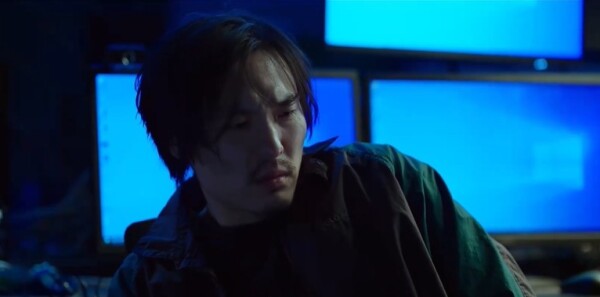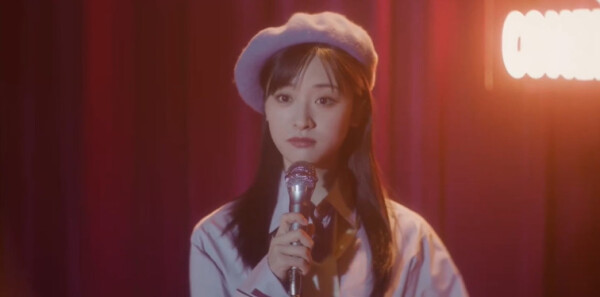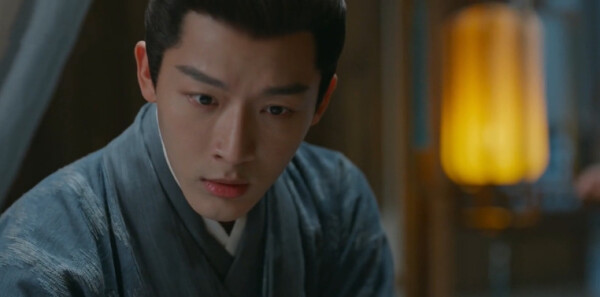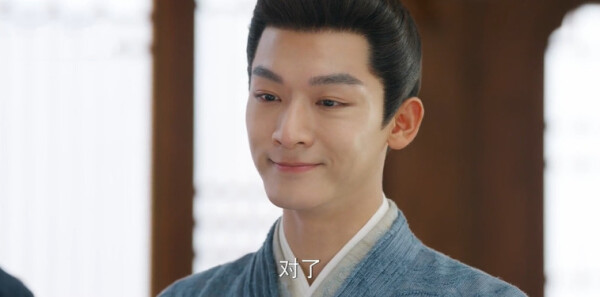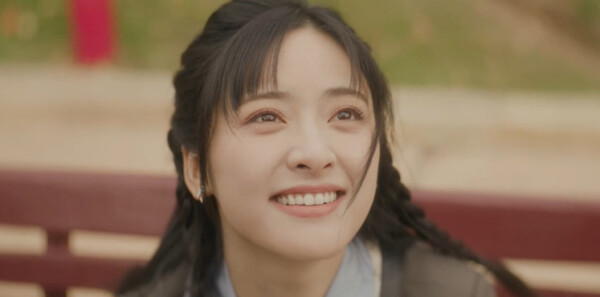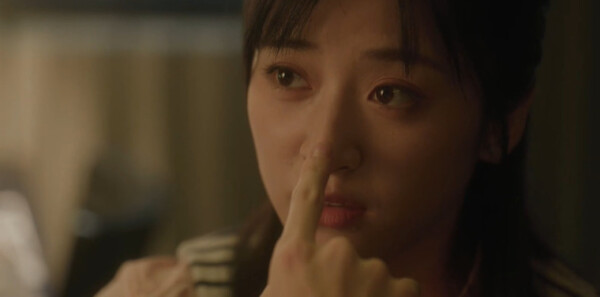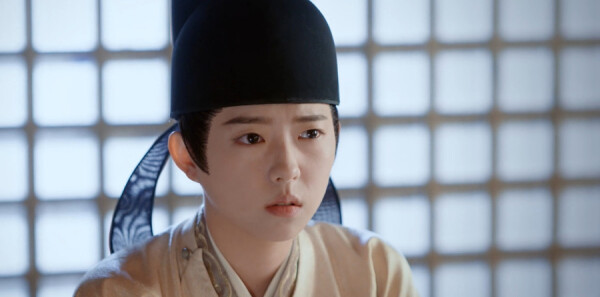活着《无他,我只是开始懂得我为什么而活着》
- 书评
- 2023-03-26 10:35:13
- 55
这本书被推荐已经很久了,只是一直没看。
因为我以为这是向我们灌输人为什么而活着的大道理的。
福贵眼看着自己身边的人一个个离开自己,
只有一头老黄牛陪伴了此残生
却也欣慰地笑了
安心,因为自己最亲的人全是自己亲手送葬的
然后自己尘归尘土归土,倒也自在
本想看两页就睡,却陷了进去,看到半夜一点半
看完后,我又回想了一遍福贵的一生
嗯,对世界来说,我的生活,我的命运不过是沧海一粟过眼云烟
对我来说,却是那般惊天动地不可磨灭
年轻时候那样一个放荡子
却在后来握着家珍的手说:我只想好好过日子
也许是他参透了活着的本真,也许只是家财散尽后的走投无路哭
然而,活着的机会于我们来说是那么不易
想当年若是福贵不当败家子,也许后来大清扫打地主的时候死的就是他了
他这一生过的太不易
从富贵的少爷变成落魄的流浪人
然后拉到战场当壮丁
从战场硝烟火海中逃生
方知家之珍贵
看着爹死,看着娘死
看着儿子死
女儿好容易找到那样好的归宿,还是逃不过命运的门槛
家珍也随着女儿归去
连苦根也不再愿意留下来
战场上,春生和老全对他说,只要心里想着不死,就不会死
家珍和凤霞也始终相信这一点
于是,凤霞硬生生地把家珍从鬼门关上拉了回来
我想,这是老天给福贵的一道坎
从他开始浪荡于城市妓院赌场的时候
从他开始输光家产的时候
只有跨过了这些,也许福贵才知道什么是真正的活着的状态
我想,其他的人都不是生活的勇敢者
福贵是勇敢地面对生活砸来的种种
之余福贵,所谓活着,就是那样的状态
以死的方式活着
这不是一种消极的状态,也许是淡然了
安宁,也淡然
然后牵着一头老黄牛
福贵,快点多干点,有庆,凤霞,家珍都比你干得多
从这句话开始流泪的
我不知道他是不是活在自己臆想的状态里
好让自己不要那么的孤单
不管你命运拿什么丢给我
我都要迎着面上去
哪管你风有多大
哪管你是不是要我独自一人撑伞
以死的方式活着
该来的始终要来,连这都不怕了,还有什么做不到呢?
喜欢这里面的每一个人物
也许有时候会喜欢旧社会那女子们的从一而终
我跟了一个人,就跟定你了,管你坏不坏,我也死是你的鬼
福贵妈说,家珍是你的女人,跑不掉的
家珍不是盲从
终究她是跟对人了
当福贵背着家珍去晒暖暖的太阳
握着她的手说,我什么都不要,只要家珍在我身边好好的过着日子
凤霞是那么天真可爱的一个小女孩,从富家千金变成了落魄家的闺女
也始终不改那样的灿烂
每看到凤霞亲昵地靠着福贵的时候,就会感动
我想起自己和爸爸
我妈说,爸爸是女儿的情人,女儿都是想找个爸爸那样子的
那种与生俱来对父亲的依恋,也许只有血浓于水才能解释
妈妈是无法扮演这个角色的
还有二喜,那个对凤霞和这个家无波宠爱的偏头女婿
那个总愿意在自己的地上走走的老太爷
那个慈祥的母亲
那个有点顽皮的有庆,喂小羊吃草的模样
以及最后那个有点甚至不知人见疾苦的苦根
我觉得那是一个活脱脱的小时候的福贵,虽然我没见过丝毫的描述
也许这就是鲜活的文字的魅力
我开始对于活着的意义更加明晰。
Analyze Fugui’s Psychological Development and His Understanding of the Meaning of Living
2009年5月6日
Abstract:
The tragic fate of the hero Fugui in To Live reveals the tremendous endurance human or life has to suffer. Through the hero Fugui the writer Yu Hua told us the meaning of living and pointed out human’s responsibility and obligation while being alive. Fugui’s psychological development is indeed the reflection of how a person learns to live a life. For the whole history of human so many great ancestors have been meditating about what is the meaning of living and actually nobody gives a definite answer. Yu Hua’s To Live had revealed this difficult problem by telling a story. In Yu Hua’s novel he never said anything about what the meaning of living was but after reading it the reader will be informed. This paper aims at finding out how Yu Hua revealed the meaning of living. The research way is to focus on the typical character Fugui especially his psychological development. After doing several researches the paper will finally present that Yu Hua showed the meaning of living by depict the psychological development of Fugui that is to say the mature of Fugui indeed informed us the meaning of living.
Introduction:
Yu Hua once said:”In 1993 I heard an American folk song old slave. In the old slave after the hero old slave experienced a life time of suffering and his family all died before him he was still friendly to the world not a little complaint. This song impressed me deeply. And I decided to write an article which is To Live."
To Live whose Chinese name is Huozhe is a representative piece of work of a famous Chinese writer Yu Hua. Yu Hua said that a real writer will only write according to his own internal feelings. Under the guidance of this principle he began to write this novel To Live which gained him great reputation. What is the meaning of living? This is an entanglement that probably exists in our minds and throws us into trouble. And in Yu Hua’s novel Yu Hua never said what the meaning of living was but we can get the understanding that: we just live to live. This is just because that the novel solved this profound problem by telling us a common Chinese man’s whole life. The hero Fugui had experienced a rough life full of frustrations and cheerfulness. From a coxcomb in his youth to a serene old man Fugui gradually became known to the meaning of living. In that particular era Chinese people would suffer more difficulties than what we are faced with nowadays. In this period Fugui had gone through great psychological changes and different points of view towards the meaning of living. From these changes and the development stages we can clearly get to know the true essence of life. As the previous research done by others seldom focus on how Yu Hua revealed the meaning of living this paper will concentrate on this aspect.
To Live is a very famous and representative piece of contemporary literary work of China and the spirit it carried out has encouraged many people who feel confused about how to live and what the meaning of living is. Most of the previous study and research of To Live focuses on the attitude that Fugui adopted when faced with inconceivable hardships crushed on him. In Huang Weilin’s To Undertake the Difficulties with a Long-suffering Attitude: Analysis on the Modernism of To Live( 2007) Huang uses modernism to explain Fugui’s attitude. He says that Fugui is to some extent obedient to reality and had no desire to rebel which is decided by the society condition at that time. The novel used disasters and deaths to strike reader’s hearts and raise the physical resonance.
A movie adapted by the novel is also very famous so another research way is to make a comparison of the book and the movie. From the comparison the readers can know Fugui’s attitude in a clearer way. For instance Wang Jianming’s Fu Fui’s Living Attitude: a Comparison of the Movie and the Book(2007) thinks that in the novel the author acted as a viewer the third person ex
I think the research of these persons didn’t focus too much on Fugui’s psychological development process. But this is very important for us to have a deep research into the meaning of living. Only when a person had ever experienced so much can he had such great change in attitude towards life can he finally knew the true meaning of living. So this paper will focus on the psychological development process of Fugui and from this we can definitely ***yze the true meaning of living.
The paper will mainly focus on five stages on Fugui’s psychological development.
The first stage:
In this period Fugui never considered the meaning of living. Fugui was born in a wealthy family in a village and his father was a land owner. Fugui was always living in a rich and indulgent life and never considered how to live a full life in that feudal society. He lost himself in casino and brothel day and night. To him the only meaning of living was to indulge and seek pleasure.
Actually at this moment Fugui never considered even he never knew the meaning of the word “living”. That is destined when he was born. The fact that Fugui was born at that era and that situation and his family status in society decided his life attitude. The society background is the end of Qing Dynasty and the beginning of Republic of China. In the old society owing to cruel exploitation and successive years of tangled warfare among war loads the laboring people led a vagrant life. Almost everyone lived a numb life. If they found themselves alive when they woke up in the morning they would be grateful. Fugui was wealthy and this gave him more room to indulge. This is the sorrow of society.
Yu Hua used a lot of words to depict Fugui’s indulgent life and many details of his behaviors. This not only was a way to satire the condition of society but also a foreshadowing the shifting of the latter Fugui after suffering a lot.
The second stage
In this period Fugui had no direction of life. He has no choice but to begin to live a quiet and placid life. In this stage the meaning of living to him is to live a quiet life and with the company of the family. To him life became nonsense and he thought himself an utterly useless person thus meaning of living is nothing to him. Then Fugui lost all his family’s property. He had no alternative but to be a poor farmer. His family especially his wife Jiazhen didn’t desert him. With there company Fugui regained the courage of living.
Fugui suffered all of this all because of himself. In his immoderate gambling and the snare of another gambling person Longer he lost all of his property. This is another thing Yu Hua would like to indicate in the novel that is at that time everyone was selfish to live and even had no principle. Responsibility obligation or morality seemed luxury things for them. They even didn’t know how to survive let alone considering other things. Fugui was no doubt one of them and in some sense he was accommodate society or surrender to society.
Actually after experiencing the total lost—his property his status and even his father (died because of great sorrow) he more or less began to get to know his responsibility which meant he at least was no longer the playboy. Then he knew that he should live live to shoulder the family.
Fugui’s father played an important role in Fugui’s process of being mature though he was always scolding Fugui for his disobedience. Fugui’s beginning of waking up began when his father died. This stage was actually the beginning of Fugui’s awareness of living.
The third stage
Fugui was unfortunately forced into battle field. In this time between life and death he had deeper experience of life and began to know the meaning of living. When Fugui really wanted to live a quiet life he was haphazardly forced into battle field by Kuomintang when he was buying rice in the city. He didn’t know what to do but to live like a corpse. He thought he could never go back home. In the battle field he made two good friends named Laoquan and Chunsheng. They told him that: if you think you would be alive and you will be alive. This greatly encouraged Fugui and finally he successfully went back home.
This was the turning point of Fugui’s whole life precisely his awareness of the meaning of living. This is the first time Fugui had seen such shocked images and death. The most important thing is that he finally survived and one of his best friends died just because of getting steamed bread. He had felt the cruelty of life and he knew that he should cherish the opportunity to live.
How minute human’s life was and how merciless the bullet was! Fugui totally was aware that once you stepped on the battle field you yourself could not decide your own destiny. Actually in this stage Fugui was confused. Fugui really couldn’t understand why they should live. Although he was confused he was beginning considering the meaning of living and this was a take-off in his life experience. This battle field experience was to some extent very important and almost the deciding factor that urge him thinking why he was living.
Many reports that were done by the previous researchers had put much emphasis on this experience in the battlefield. I also think that this period gave Fugui a brand-new viewpoint on life.
The fourth stage
This is the deciding stage of Fugui’s life and idea of living. There is a great change in this stage. Like the old slave Fugui had seen all his most intimate families die before him. At first Fugui thought that the meaning of living is to live with his wife and children. Then after he experienced all the sufferings he almost has no feeling towards living (But this doesn’t mean that he had a negative attitude of life and it means that he almost saw through the emptiness of the world). At first Fugui narrowly escaped home. He found that his mother had already died. He was very contented with his mode of life. Fugui thought that the meaning of living was to live with his wife and children. Then in the Cleaning Campaign the one who once cheated him Longer in the casino was killed because he replace Fugui to be the landed class. Fugui escaped the killing. In the great Proletarian Cultural Revolution he and his family suffered a lot but still lived a warm life. Later in an accident his son died he was very sad about that. His daughter Fengxia who became deaf and mute in a fever finally had a good marriage. Her husband Erxi who also had some disability treated her and her family very well. But Fengxia died in the dystocia when gave birth to Kugen. Before Fengxia was died she said that if you had a desire to live you would not die. So although Jiazhen was suffering an incurable disease she kept alive ba
This was the climax of Fugui’s whole life. It was obvious that Fugui had already to some extent know the meaning of living and the readers began to know the aim of this novel although not that clear and not definite.
Fugui had suffered all a human could suffer in a whole life. On one hand he was unfortunate because all of his family members had died in an abnormal way; on the other hand he was fortunate because he feel happy and relieved: all the sorrow was left to him but not his beloved ones.
Yu Hua made every man and woman in Fugui’s family die in an abnormal way in order not only to create a tragic atmosphere in this novel but to criticize the society. The author made us feel in the spot by depicting the sufferings Fugui experienced under the real background. The society was a killing to human nature. But fortunately Fugui was not been defeated.
In this period Longer’s death was a big influence on him. This is mainly because Longer was executed by tanking his place. At that time he thought he was narrowly escaped the death and he began to want to live calm in life.
Fengxia was an important person in Fugui’s psychological development. When Fugui was young no matter how indulgent he was Fengxia supported Fugui at any time. She always believed that if you had a desire to live you could live. I think it was the essence of this novel and it was the catalyst that pushed Fugui to live.
After burying Kugen Fugui began to think about how the rest of his life should go on.
The fifth stage
Old Fugui did know the true essence of living. There was only an old scalper to accompany him but he felt mellowness. After such a winding and complicated life Fugui really understood the meaning of living: live to live which means that living is just a kind of state and a fr
Till now there was no more any contradiction in Fugui’s life and mind. Maybe sometimes he would feel lonely but in most cases he was satisfied. This was all because in his own lifetime all he could should and need to experience and suffer had all been given to him. Above all Fugui is not a person that didn’t learn the lesson from life after so many things he finally knew what was the meaning of living.
Conclusion:
After reading the whole novel I am sure that the readers are totally moved and they must have known that what the meaning of living is. But actually the author had never told them about that from the beginning to the end. How did Yu Hua accomplish this? This paper has already ***yzed the whole process. Yu Hua told us the answer of the novel just by telling us a story. Fugui is growing everyday and Fugui’s psychological movement is developing everyday. This is how Fugui step by step understanding the meaning of living and this is how Yu Hua elicits the meaning of living. By ***yzing Fugui’s psychological development and his understanding of living we finally know the essence of living: live to live.
Bibliography:
Anonymous. The Experience of Living. Internet: http://news.xinhuanet.com/book/2003-03/07/content_764289.htm. 20:39:20 March 20 2009.
Anonymous. Why do you live? Internet: http://www.zjsyxx.com/upload/bookclub/200661983826.doc. 21:00:45 March 20 2009.
Chang Chun. The Meaning of Living. Internet: http://www.psych.gov.cn/article/article_view.asp?id=331. 20:44:29 March 20 2009.
Hao Jian. Yu Hua: To Strike the Memory of Soul by Bloody Writing. Internet: http://www.tecn.cn/data/detail.php?id=10460. 21:16:12March 20 2009.
Hu Guowei. Journal of Liaoning Technical University (Social Science Edition). Analysis of narrative art of“Living”. July2008:Vol. 10 No. 4.
Huang Weilin. Nanfang Comment. To Undertake the Difficulties with a Long-suffering Attitude: Analysis on the Modernism of To Live. May 2007.
Liu Tong. Journal of Weinan Teachers College. On the Hero Fugui in Beings. May2003:Vo1.18 No.3.
Wang Jianming. Journal of Contemporary Comment. Fu Fui’s Living Attitude: a Comparison of the Movie and the Book. February 2007.
Wang Xuehai:Two Readings on Novel Text:Taking Yu Hua’s Novel to Live as an Example.May2008: Vol. 20 No. 3.
Wu Yiqin Wang Jinsheng and Hu Jianling. A Research Document on Yu Hua. Shan Dong: Art Press 2006.
Ye Liwen. “Novel Review’ .The Power of Narration: a Interview of Yu Hua. April 2002:25
Yu Hua. To Live.Shanghai:Shanghai Literature and Art Press. May 12004
Zhang Qinghua. A Narration of an Era: a Interview of Yu Hua. Internet: http://yuhua.zjnu.cn/show.aspx?id=680&cid=8. 21:13:12 March 20 2009.
Zhang Yong: The Realistic Approach of the Narration Redemption and Retrospective of Misery of the Long Novel on Living by Yu Hua. Journal of Chaohu College. 2008:No.2.Vol.10. Serial No.89.
虽然写的很shit,但是转载请注明出处
本文由作者笔名:小小评论家 于 2023-03-26 10:35:13发表在本站,文章来源于网络,内容仅供娱乐参考,不能盲信。
本文链接: http://www.w2mh.com/show/36632.html
 小小评论家
小小评论家







